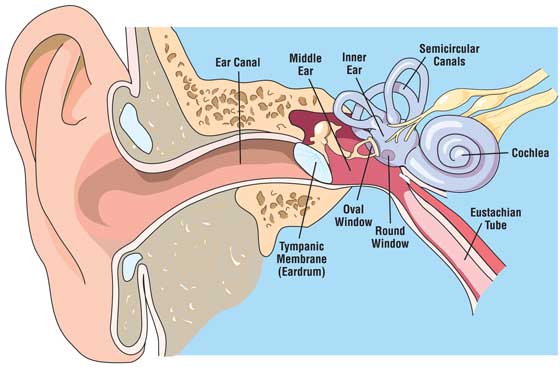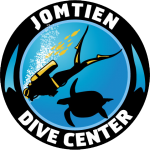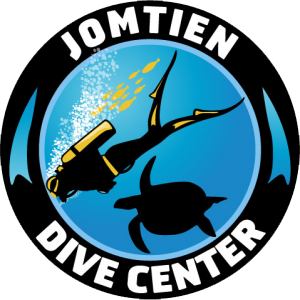
Dive trips can be quite demanding for your ears. Flights, change in temperatures, air-conditioning, wind, water and, the dives themselves all affect your ears and healthy ears are required for equalization and enjoyable diving.So what is the best way to equalize and look after your ears pre and post diving. One of the first things you learn when tying scuba diving is how to equalize. Remember as your descending you need to equalize your ear spaces roughly every meter. The main technique for equalizing your ears is the Valsalva technique.
Valsalva technique, Pinch your nose closed with your fingers then blow out gently. This process adds air to your middle ear, helping you equalize.
This basic technique works for most people, however if this technique doesn’t work you can also try wiggling your jaw in a side-to-side motion can also help you equalize air spaces as you descend or try swallowing.
If those basic techniques don’t work for you there are several lesser known alternative techniques.
Yawn and tilt Think of that time when you are really bored by someone talking to you and your trying to hide the fact you’re yawning. Keep your jaw tensed and then slide the jaw forward and down as if yawning. This helps open the eustachian tubes.
Try tilting your head from left to right — you may find the elongated side of your head/neck is easier to equalize. If you find one side equalizes and not the other turn the problem ear towards the surface block the ok ear and using the Valsalva gently blow through your closed nose.
Toynbee maneuver. While pressing your tongue against the roof of your mouth, pinch your nostrils closed and then swallow.
Lowry technique. Using a mixture of both Toynbee and Valsalva, close your nostrils, blow and swallow at the same time.
Frenzel maneuver, Close your nostrils and the back of your throat, then make a deep, prolonged grunting or growling sound. The grunting sound may help ease open the airways. This is a variation on the Toynbee method.
Whichever technique you use everyone is different, some people can simply swallow as they descend with no issues and some people require a bit of extra time to equalize especially for the first 5-10 meters.
As a good buddy remember to descent with the slowest member of the group and be patient.
Pre and Post Diving Ear Care
Clean your ears – A little earwax is good for your ears it can help protect your ears from infection so do not over clean your ears. Too much can block the outer part of the ear and the eardrum creating a pocket of air that will expand and contract with pressure on dives, leading to potential injury.
Keep your ears dry, Warm, salty waters can be a breeding ground for bacteria and infection. Do not let saltwater dry in your ears.
When you’re finished diving for the day, rinse your ears with white vinegar and fresh water. This help in two ways. First, it cleanses and dries the ear canal. Second, it changes the pH balance making it harder for bacteria to grow.
Enjoying the AC taking a break from the heat? As comforting as the AC might be transitioning from hot to cold and vice versa can wreak havoc with your ears. If possible limit your exposure to AC to minimize your chance of blocked ears
Why and who should do a Refresher course ?
Congratulations on completing your Open water course, you are now a certified diver for life. Technically there is nothing to stop you from renting some gear with your certified buddy and going for a dive whenever you want.
If however you have been out the water for a period of time, your skills and knowledge will be a little rusty and in reality after just completing an open water course do you really have the experience to go diving on your own, a year later, with no diving in-between?
PADI recommend that you take a refresher or Re-Activate course after 6 months of inactivity. Many divers will dive on holiday once a year and to take a refresher course every year before your holiday is not likely to happen.
Every Diver is different and at Jomtien Dive Center we take this into account when looking at when someone last dived and the possible need for a refresher course.
If you have a rescue diver with 1000+ dives but has been out the water for 18months, they are less likely to require a refresher compared to a newly certified open water diver who completed the 4 required dives 18 months ago.
There are many more factors that would determine if someone needs a refresher than just the period of inactivity. If you have not dived for 5 years we would require a refresher and anyone who has not dived in 10 years we recommend getting recertified as you will find a lot has changed in that time. This is not only for safety for you but also for anyone who ends up diving with you.
Take a refresher course
It is the perfect way to update your dive knowledge and skills before diving back in the water.
A one day refresher course with Jomtien Dive Center will be personalized to your needs, the instructor will spend some time discussing your dive history and assessing what you remember and what is a little bit fuzzy.
You will review dive theory with your instructor before setting up your equipment and heading into the water. Be it buddy checks, signals, dive planning or basic skills and buoyancy your instructor will review the skills needed to get you refreshed and confident to get back in and dive your dive plan.
Depending on how long it has been since your last dive you can choose to either spend a day in the class and pool to slowly review the skills and theory in a more relaxed slow pace or you can go directly onto the boat, review theory on the way to the dive site, spend the morning in confined water reviewing your skills and follow it up with a dive in the afternoon.
1 Day Theory + pool session = 4000b
1 Day boat Theory + confined session + 1 dive = 5000b
Contact us today to book your refresher and get back in the water with confidence.
Stay refreshed
As a certified diver, it’s up to you to refresh your dive skills and keep your diving knowledge up-to-date. This is for your safety along with anyone who dives with you.
Before a diving trip, or after a year of inactivity we recommend you refresh yourself on the basic rules and recommendations.
Certified divers are responsible to plan their dive and dive their plan.
Take a refresher course
It is the perfect way to update your dive knowledge and skills before diving back in the water.
A one day refresher course with No Limit Dive Center will be personalized to your needs, the instructor will spend some time discussing your dive history and assessing what you remember and what is a little bit fuzzy.
You will review dive theory with your instructor before setting up your equipment and heading into the water. Be it buddy checks, signals, dive planning or basic skills and buoyancy your instructor will review the skills needed to get you refreshed and confident to get back in and dive your dive plan.
Depending on how long it has been since your last dive you can choose to either spend a day in the class and pool to slowly review the skills and theory in a more relaxed slow pace or you can go directly onto the boat, review theory on the way to the dive site, spend the morning in confined water reviewing your skills and follow it up with a dive in the afternoon.
1 Day Theory + pool session = 4000b
1 Day boat Theory + confined session + 1 dive = 5000b
Contact us today to book your refresher and get back in the water with confidence.
Tips for buoyancy
1. Weight
Improper weighting is the most common cause of buoyancy problems.
Divers often compensate for extra weight by adding more air to their BCD, The issue with this is as you ascend and descend the air in your BCD also expands and contracts with the depth change and requires you to adjust your BCD frequently to try and find the balance required for neutral buoyancy.
It will be easier to achieve better buoyancy if you are weighted correctly and require very little adjustment to your BCD.
2. Buoyancy check
Buoyancy checks are recommended anytime you dive somewhere new, are using new equipment or haven’t dived for a period of time.
If possible, try and complete a buoyancy check before you go diving using a near empty tank to take into account the added buoyancy of a full one.
With a near-empty tank, take in and hold one normal breath, empty your BCD of all air while on the surface, you should float at eye level. Add or subtract weight until you do.
3. Trim
Underwater you want to make sure you maintain a horizontal position, if you keep your fins lower than your body you will also kick up as you move forward. This will make it appear you have become buoyant and when you release air from your BDC you will become too heavy and end up sinking.
To check your trim, Once you are neutral, hold your body absolutely still with your legs stretched out behind you. If your legs sink, you should move a little weight from your waist to a point higher on your body.
4. Breath Control
Besides your BCD you have a natural buoyancy compensator, your lungs. Lung alone can hold around 5kg of lift power. When you breath your buoyancy will change around ½ a kilo from the inhale and exhale of breath.
When you are properly weighted you will be able to Control your ability to rise and fall simply by controlling your breathing.
5. Take the PADI PPB course
PADI offers a diver specialty course called Peak Performance Buoyancy, If you would like to improve and perfect your buoyancy skills taking a PPB course is an excellent way to learn more about buoyancy techniques. You can practice them in a controlled environment under instructor supervision. These courses should teach you how to streamline yourself, make precise weight and trim adjustments, configure your equipment and practice helpful relaxation techniques.
If you would like to learn more about the PPB course contact us.

